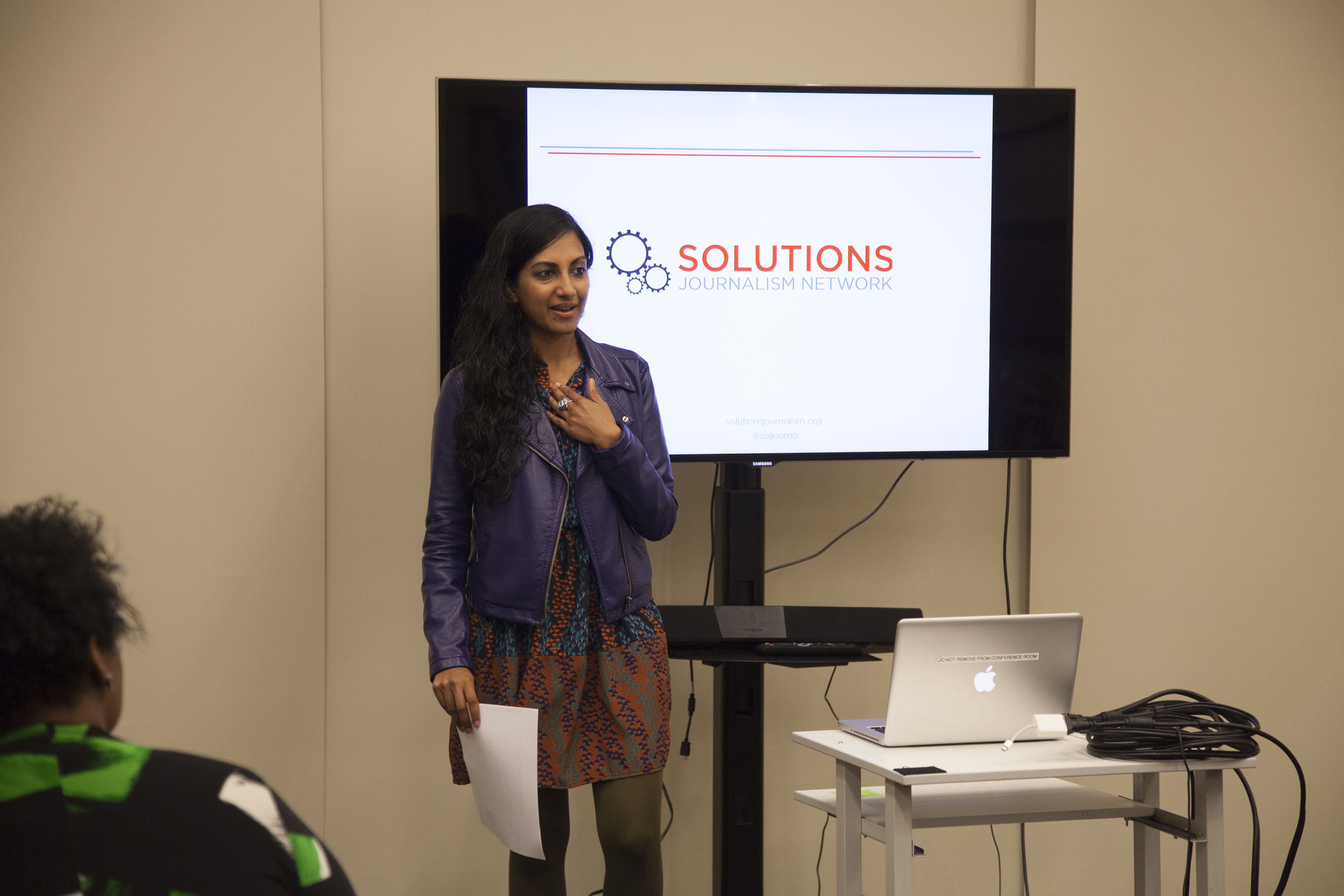Why do many journalists shy away from reporting ‘fixes’ to social problems? Are stories that emphasize what is going wrong inherently more newsworthy than those that highlight promising responses?
These are some of the core questions that Tina Rosenberg, David Bornstein and Sarika Bansal of the Solutions Journalism Network (SJN) addressed when they joined the Pulitzer Center on Nov. 12 for an afternoon workshop with 30 journalists and editors aimed at exploring the SJN model and the skills needed to write successful solutions-oriented stories.
Solutions journalism can be as informative and provocative as traditional journalism, according to Rosenberg. One example, her 2001 report for The New York Times on Brazil’s efforts to produce generic AIDS drugs and provide them freely, countered the prevailing narrative that the disease could only be managed by those living in rich countries. Rosenberg asserted that framing a story around the question “Who is doing it better?” can provide readers with new perspectives about social issues, can be written in ways that tell the whole story, and can make problems starker and spur conversations about change.
To illustrate the model further, SJN led participants through discussion and analysis of the work of Pulitzer Center grantees Amy Maxmen, Steve Sapienza, Chris Berdik and Esha Chhabra. On stories ranging from malaria prevention in Africa and polio eradication in India to providing clean water to slums in Bangladesh and determining the economic and ecological tradeoffs of conservation in Cambodia, the journalists described their critical investigations of proposed responses to these issues as integral to their reporting process.
During the evening they shared more of their reporting experiences at “Inside the Notebook,” a storytelling event attended by more than 70 media professionals to share ideas about the potential and challenges of solutions journalism.







